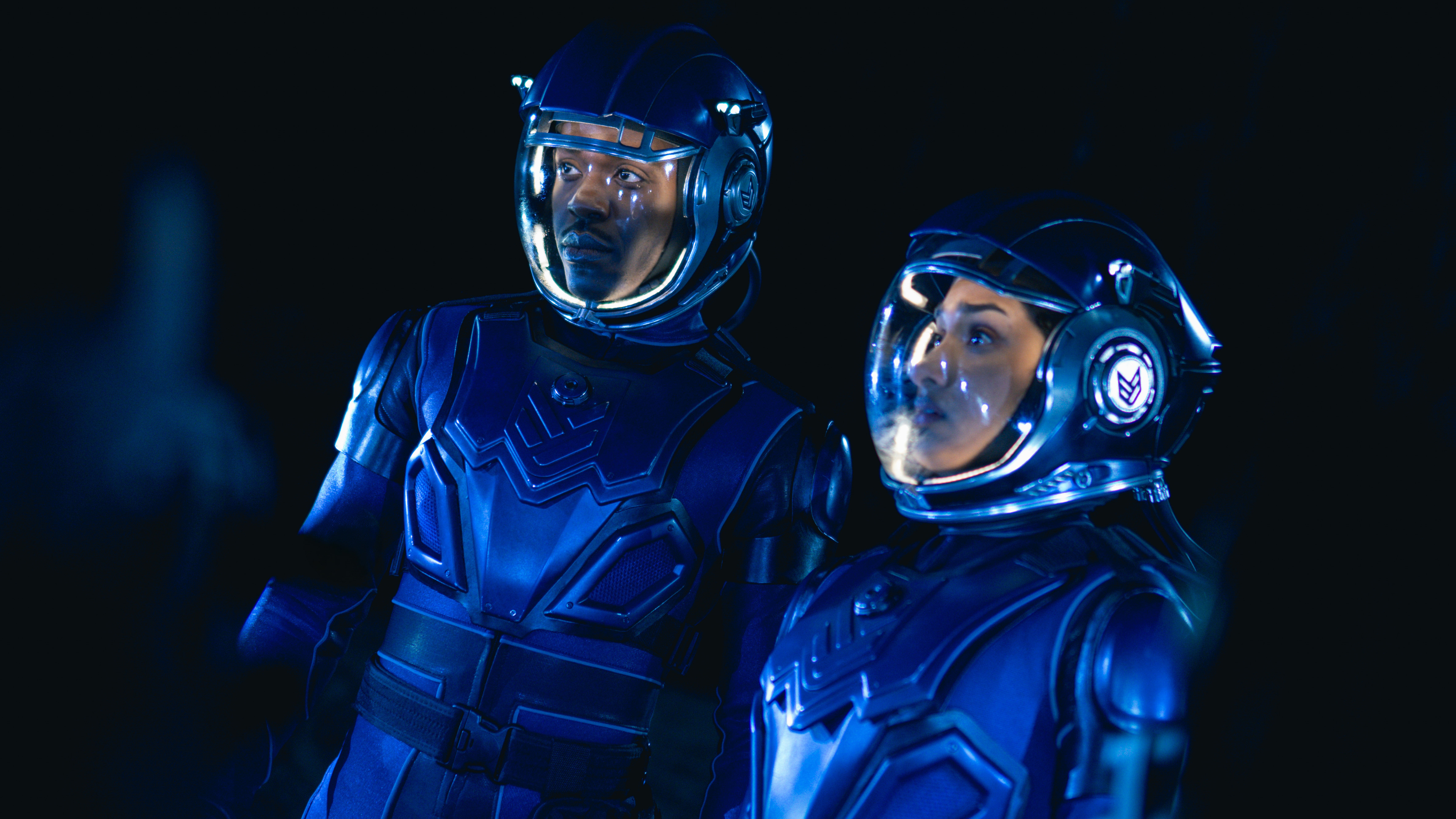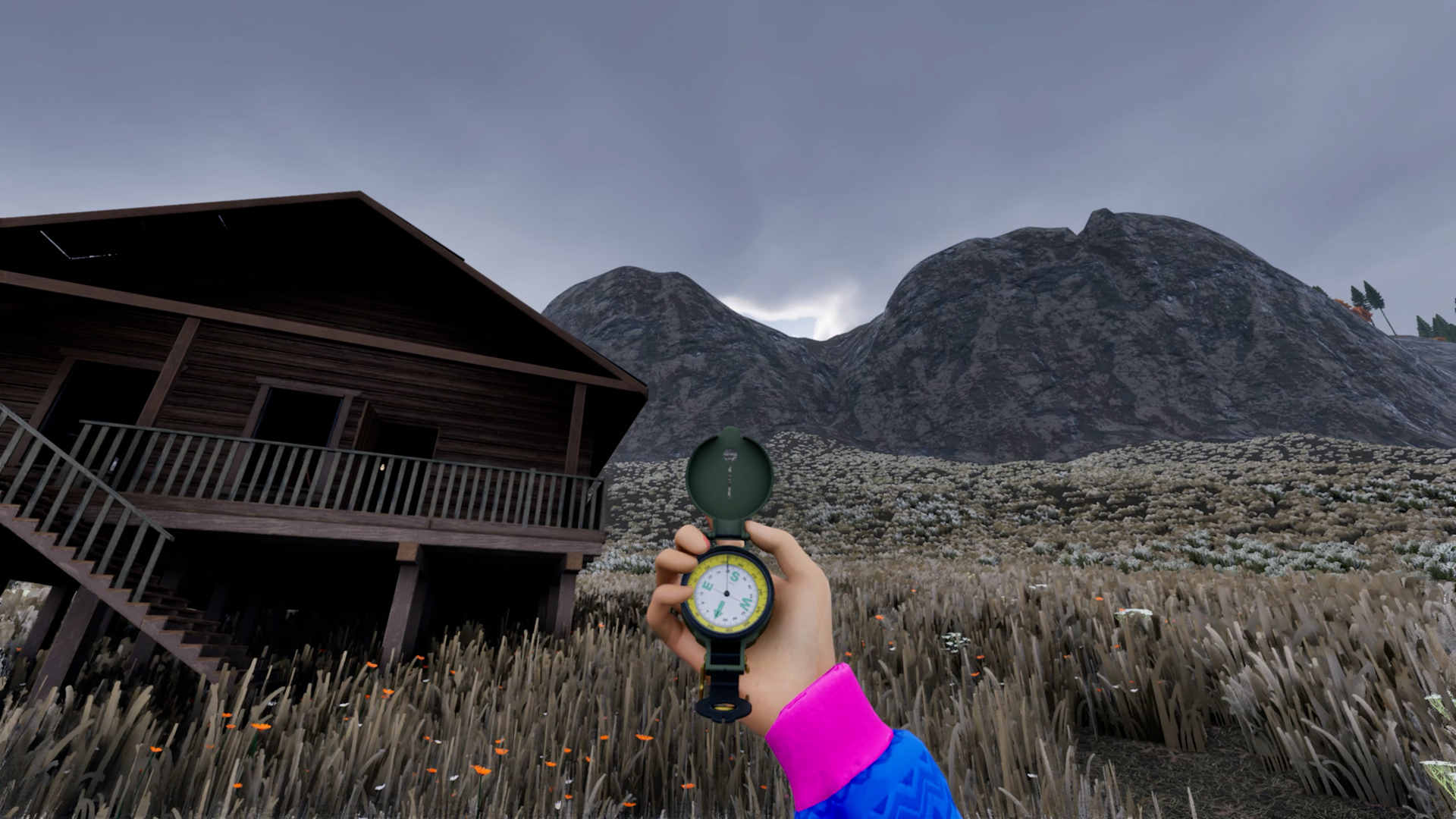
In my previous attempt at Prologue: Go Wayback!, the survival game from PUBG creator Brendan Greene's new studio, I thought I'd found the perfect spawn. After several runs where I'd frozen to death barely beyond my starting spawn, I found myself on a new expedition laden down with amazing equipment that would ensure I remained toasty warm all the way to my objective. Sadly, in my hubris, I elected not to pack a torch, and eventually starved to death, stumbling around, utterly lost, in the pitch black.
Prologue is unapologetically simple. In each game, you'll spawn in a run-down cabin in a river valley inspired by rural central Europe. Somewhere atop the valley will be a weather station, and it will be your job to overcome the terrain and the elements to make it there, managing hunger, thirst, cold, and your inventory as you go. In that sense, it plays much like many survival games. In two very important ways, however, it's unlike any survival game you've ever played.
The first of those, is that while it's simple, Prologue is also, according to creative director Scott Davidson, "as hard a survival game as you could make." Cold, hunger, and thirst will kill you almost instantly. Making a fire is not about selecting it from a build menu, but carefully arranging kindling and logs. Navigating the world is not a case of following a minimap, but of using a handheld map and compass to orient yourself within your environment. There's no real tutorial to speak of, and the few hints that might give you an advantage are subtly placed . And all that serves to exacerbate Prologue's other important development - that you'll never play the same map twice.
Brave New World
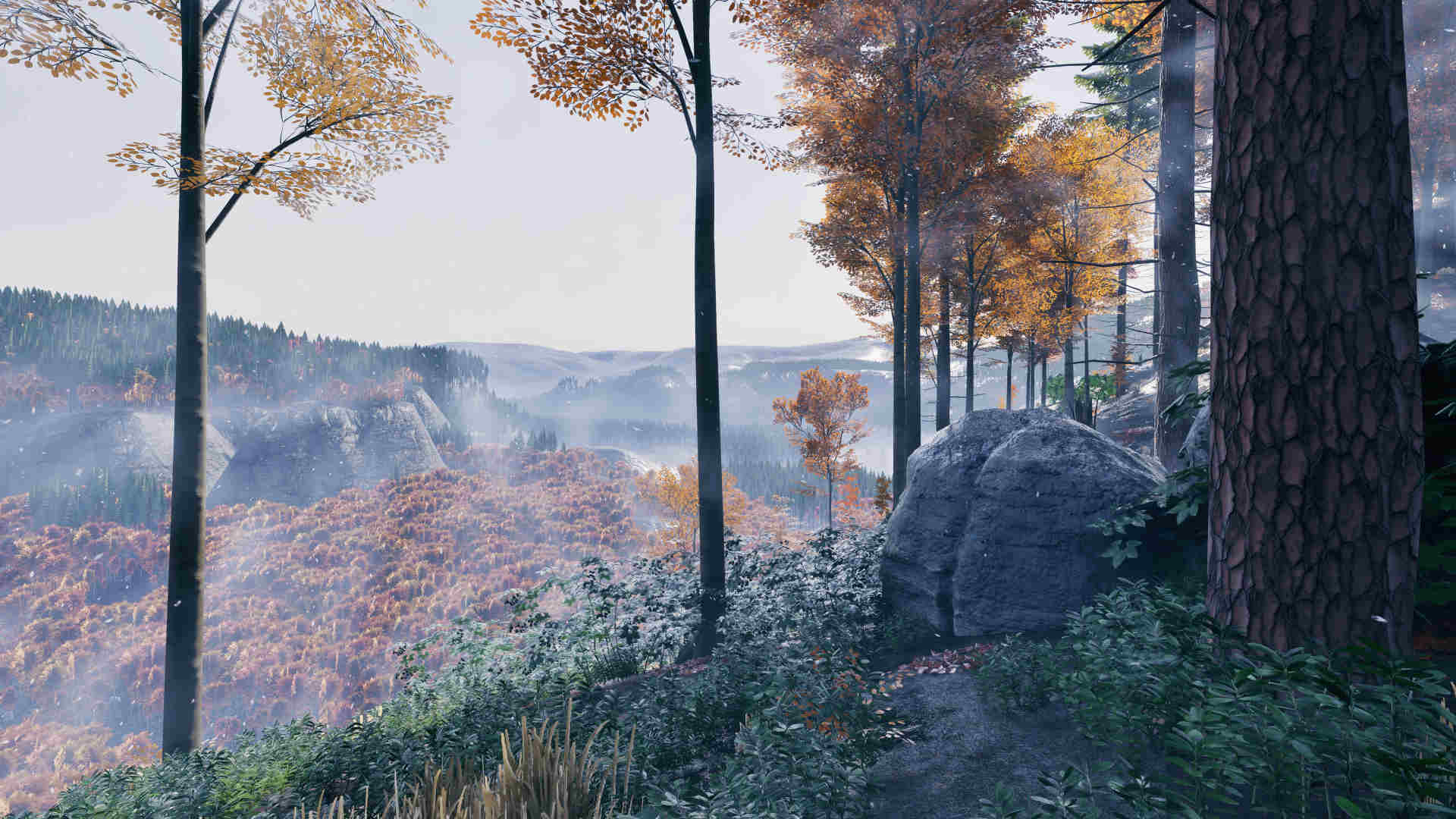
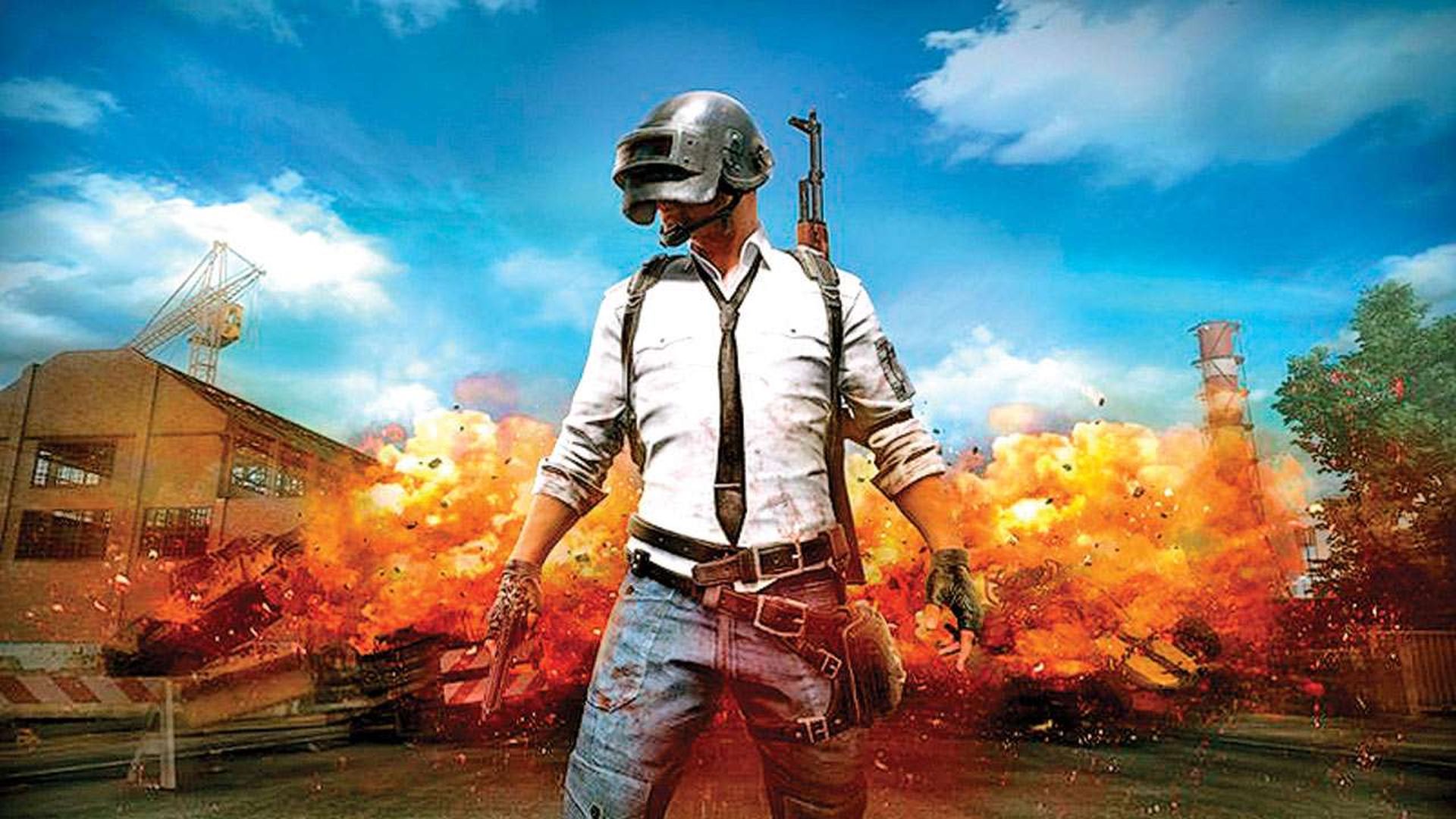
PUBG creator explains why he's making a super-hard survival game instead of PUBG 2
Prologue is the first step towards Project Artemis, the studio's lofty goal of creating a shared world thousands of square kilometers in size and capable of hosting millions of players. That project is still a decade or more away, but Prologue is the first real test of the tech behind it - procedural generation driven by machine learning, currently capable of generating 4.2 billion viable world seeds. No matter how far you make it to the station, success or failure will automatically generate a new world. There'll be no saving your progress in case something goes wrong, and no chance to study the world to get an advantage next time.
That variance isn't felt too keenly. As I played, the devs repeatedly invoked 'the oatmeal problem' of procedural generation - you can generate 10,000 unique bowls (or forests, in this case), but do they actually feel different to the person experiencing them? Not really. What billions of potential maps does ensure, however, is that when you get an advantage, you cling to it. A successful journey will last days in-game, multiple hours in real-time, and that's not the kind of investment you want to throw away because you did something stupid like deciding that your torch doesn't fit in your rucksack.
Shacking up
Prologue's goal is simple - cross the map to reach the weather station - but its world is deadly, and the keys to success in its emergent, simulation-driven world are not clear if you've not spent a lot of time honing your real-life survival skills in the wilderness. Even something as simple as reading a compass can be crucial to survival, but the game won't tell you how to do it. If you want to work out how to navigate, or build a fire, the devs' instructions are clear - go to YouTube, find out how to do it in real life, and then translate those skills to the game.
It's not a flawless comparison with the real world. In its search for systems-driven gameplay, the team is yet to iron out some of the jankier elements - my first attempt to start a fire ended in me shivering in a lean-to shack, a small pile of twigs and some singed cardboard scattered haphazardly around my feet.
Sign up to the GamesRadar+ Newsletter
Weekly digests, tales from the communities you love, and more
That meant I'd lost runs to hypothermia. I'd also lost runs to crashes of this super early-access build, and I'd lost runs to getting lost in the dark thanks to nothing but my own hubris. It's not until stumbling upon a bugged bottomless can of soda (which I diligently let the devs know about first), that I really begin to make progress. With enough warm clothing to stave off the weather and enough sweet, carbonated beverage to keep my belly full forever, I knew it was a matter of when, not if, I would make it to the weather station.
Rocking out
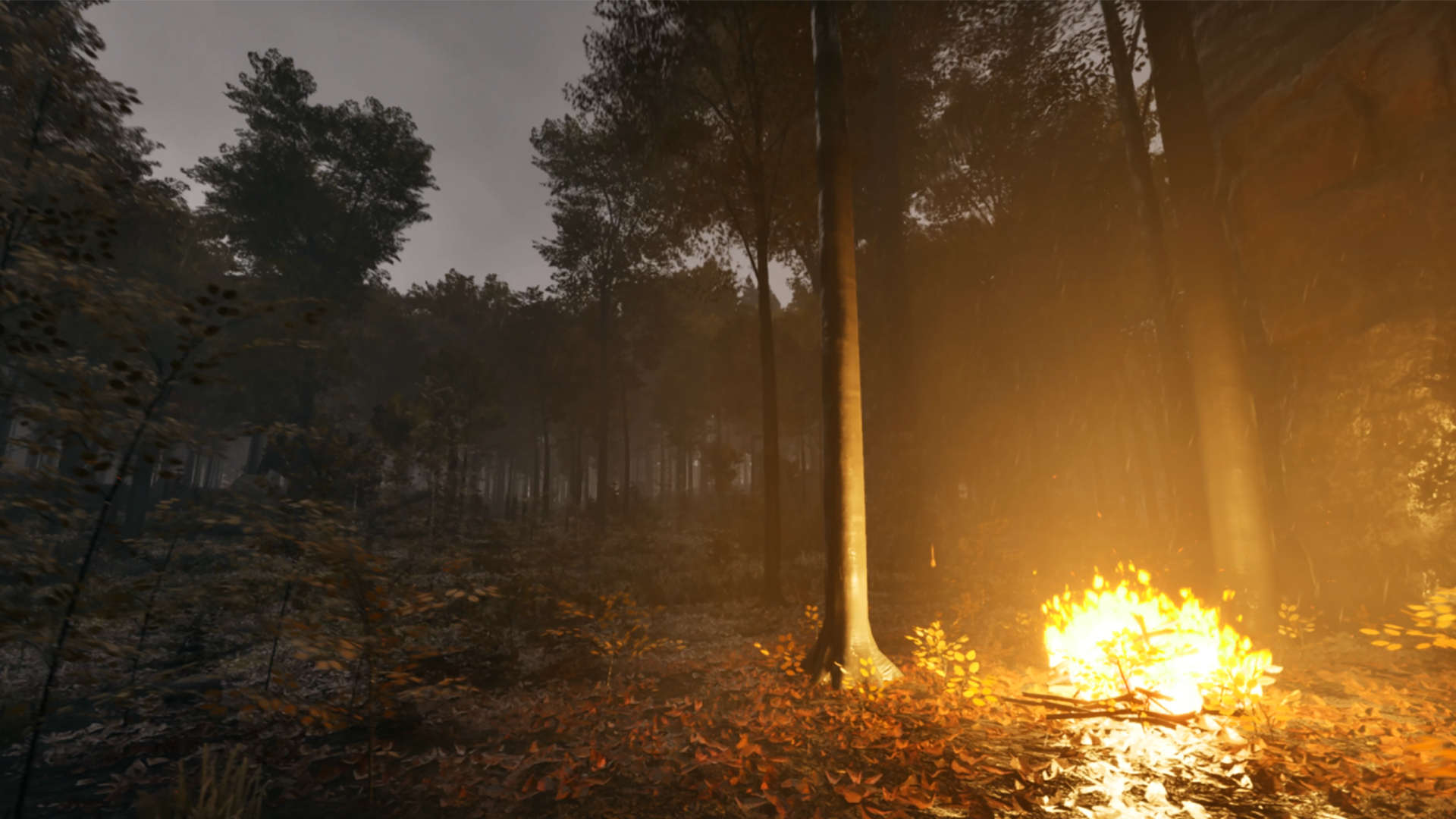
...there's the beginnings of a true wilderness experience in here...
Lacking confidence in my navigation skills, and with the forest too dense for the map to be of much use, I opt for a more basic form of orienteering. Confident that the accurately-modeled terrain tech would help me out, I head resolutely downhill, looking for water. After what feels like hours, I finally emerge onto the river bank. Yet, even being clear of trees doesn't help, the foggy weather rolling in still hiding the weather station. Using the compass to determine that the river runs north-west to south-east, I'm able to cross-reference the map to finally pinpoint my position. Freshly re-oriented, I set out anew. Eventually though, it's a different bug which brings this attempt to an end - I try to cross the river by jumping between rocks, but I find myself stuck in the game's geometry, where even fizzy pop is no aid.
Whether Prologue is 'fun' is a difficult question to answer. In its current state it's a punishing experience driven by clunky physicality that requires patient study to take advantage of even its more simple ideas. In many ways, it's a first viable product for which the eventual payoff is still years away. It is also, however, deeply compelling. In my interview with Greene, he's excited by the 'one more try' feedback, similar to that which preceded the success of his 'one more drop' battle royale experiment.
Even in the face of crashes and glitches (that are at the top of the devs' list of pre-release fixes), I'm on the same page – I desperately want to give Prologue on more go. Uncovering new gear, or working out how to actually light a fire and cook food is a thrill. Its slightly slavish attachment to emergent, systems-driven gameplay will turn some people off, but it feels like a survival fan's dream. There are issues to iron out, but for a game that might have been little more than proof of concept, there's the beginnings of a true wilderness experience in here that could take both the survival genre and open-world tech a huge leap forward.

I'm GamesRadar's news editor, working with the team to deliver breaking news from across the industry. I started my journalistic career while getting my degree in English Literature at the University of Warwick, where I also worked as Games Editor on the student newspaper, The Boar. Since then, I've run the news sections at PCGamesN and Kotaku UK, and also regularly contributed to PC Gamer. As you might be able to tell, PC is my platform of choice, so you can regularly find me playing League of Legends or Steam's latest indie hit.


